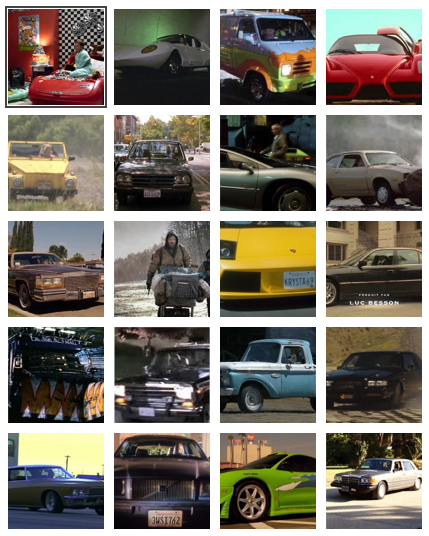 The Gay Uncle explores the Houston Mayoral race, and some other elections, and tries to interpret what it means for the gays, in his role as Vanity Fair’s online Fun&Faggy editor.
The Gay Uncle explores the Houston Mayoral race, and some other elections, and tries to interpret what it means for the gays, in his role as Vanity Fair’s online Fun&Faggy editor.
Good Tidings of Joy (glug, glug, glug)
 Wondering what to get that special parent in your life for the holidays? Well, if you gave them one of those easy-to-install childproof deadbolts for the outside of their kid’s room last year, they’re full up on earplugs and sleeping pills, and you’ve already purchased a copy of The Gay Uncle’s Guide to Parenting, you could do worse than to make them one of these. What the fuck is it (besides a waste of $4.99 and a trip to 7-11?) Well, it’s apparently what’s known in parts of the Middle West as “A Singing Christmas Tree”, and it’s as easy to make as marinated cheese. Alls you do is cover a round piece of cardboard in tin foil, take the 12 pack out of its bird-strangling plastic holsters, and put it all in a sack (along with some holiday cheer). Then you trail the whole kit over to the recipient’s house, barge in, and let them know you’ve gotten them a gift. When they ask what it is, you place the silvery disc on their kitchen counter, and tell them it’s A Singing Christmas Tree. You then remove the cheap swill from your bag one can at a time, forming a pyramidical trio of round beer tiers atop the silvery disc, all the while murdering “We Wish You a Merry Christmas”. The best part? When you’re done crooning, and you’ve recovered from the ball-peen hammer injuries your hosts are likely to inflict, you can immediately begin chuggin’. It’s a gift that gives itself.
Wondering what to get that special parent in your life for the holidays? Well, if you gave them one of those easy-to-install childproof deadbolts for the outside of their kid’s room last year, they’re full up on earplugs and sleeping pills, and you’ve already purchased a copy of The Gay Uncle’s Guide to Parenting, you could do worse than to make them one of these. What the fuck is it (besides a waste of $4.99 and a trip to 7-11?) Well, it’s apparently what’s known in parts of the Middle West as “A Singing Christmas Tree”, and it’s as easy to make as marinated cheese. Alls you do is cover a round piece of cardboard in tin foil, take the 12 pack out of its bird-strangling plastic holsters, and put it all in a sack (along with some holiday cheer). Then you trail the whole kit over to the recipient’s house, barge in, and let them know you’ve gotten them a gift. When they ask what it is, you place the silvery disc on their kitchen counter, and tell them it’s A Singing Christmas Tree. You then remove the cheap swill from your bag one can at a time, forming a pyramidical trio of round beer tiers atop the silvery disc, all the while murdering “We Wish You a Merry Christmas”. The best part? When you’re done crooning, and you’ve recovered from the ball-peen hammer injuries your hosts are likely to inflict, you can immediately begin chuggin’. It’s a gift that gives itself.
[Photo Credit: Bryan Joslin]
Top 20 Movie Cars of the 2000s
 The Gay Uncle’s alter-ego, Vanity Fair’s online car columnist, lists the twenty coolest movie cars–and the twenty best goodbad films–of the 2000s. If you haven’t seen these flicks (and cars), you are not my friend.
The Gay Uncle’s alter-ego, Vanity Fair’s online car columnist, lists the twenty coolest movie cars–and the twenty best goodbad films–of the 2000s. If you haven’t seen these flicks (and cars), you are not my friend.
No Justice; No Peen
 I paid my $19.98. I suffered the taunting emergence of numerous pop-up ads for nude male celebrity sites. I felt obliged to partake of a “Featured Video”¯ that featured the most clichĆ© video feature ever featured: doing the pool boy. And as I”ve heard tell from “a friend”¯ in relation to other porn sites, I now fear that incorrigible recurrent charges will haunt my AmEx until it expires. And what did I get from Playgirl in exchange? A shower scene, some hockey costumed hilarity, a couple glimpses of tightly shaved upper bush, and a dozen ass shots. I thought we had a sort of deal here, Levi. You get fag fame and a soon-to-be-raided college account for Tripp; we get peen. Thanks for not holding up (or out) your end.
I paid my $19.98. I suffered the taunting emergence of numerous pop-up ads for nude male celebrity sites. I felt obliged to partake of a “Featured Video”¯ that featured the most clichĆ© video feature ever featured: doing the pool boy. And as I”ve heard tell from “a friend”¯ in relation to other porn sites, I now fear that incorrigible recurrent charges will haunt my AmEx until it expires. And what did I get from Playgirl in exchange? A shower scene, some hockey costumed hilarity, a couple glimpses of tightly shaved upper bush, and a dozen ass shots. I thought we had a sort of deal here, Levi. You get fag fame and a soon-to-be-raided college account for Tripp; we get peen. Thanks for not holding up (or out) your end.
Not that the ass is bad. But it”s not a million-dollar ass, or even a quarter-million dollar ass, which seems to me the bare (ugh) minimum Mr. Johnston would have been paid to step out of his panties. In fact, in many of the shots, the ass in question looks sort of like someone rolled a pair of big Indian River grapefruits down his back, and they landed in two fleshy pouches just below his rear tan-lines. Rounded, but not very shapely.
Sadly, the front-end view above the waist is even more disappointing. What was all that I read about Levi foregoing all nourishment save Deca-Durabolin soy shakes, living on a medicine ball, and doing enough Krav Maga to kill Madonna? He looks like his concept of “working out”¯ involved lifting a Slurpee to his mouth a couple times, and then taking off his T-shirt. I”m as sick of buff boys as any other porn addict, but at least show some pride. For half what I paid to view Levi”s chicken chest, I got enough memorable material at New Moon to last me a year. (Of course when Taylor Lautner took off his shirt for the first time, I also got my Rod Lavers soaked with the torrent of tween girl pee that suddenly went gushing down the theater floor, so I guess there”s a trade off.)
Perhaps Levi is saving his goalie”s stick for a secretly scheduled upcoming pictorial, for the (rapidly approaching) day when he blows through this batch of funds, for when he finally nails LiLo, or for when full frontal man parts are allowed on network TV. (Reality-show pitch, Fall 2016: So You Think You Can Cum?) If so, I doubt I”ll be in the audience. Having seen him make leather jackets, sports costumes, and soaping in the shower seem about as sexy as two servings of prunes, the idea of Levi Johnston”s penis just makes me sad.
Is Santa A Creep
 The Gay Uncle goes skating with his nieces, and ends up asking this question. New in his MOMLOGIC column this week.
The Gay Uncle goes skating with his nieces, and ends up asking this question. New in his MOMLOGIC column this week.
Glee-cap Season Finale
 The Gay Guide to GLEE, Season Finale Glee-cap. Read it on Vanity Fair.
The Gay Guide to GLEE, Season Finale Glee-cap. Read it on Vanity Fair.
Car Gifts for Kids
Want your child to grow up to be a bland and morose cog with no notion of proper self expression, an abiding fear of joy, and a desire to do everything with oppressive levels of caution? Then definitely DON’T buy them any of the stuff on this list. Want them to grow up to be fun, fabulous (and perhaps faggy) car lovers like The Gay Uncle? Then look no further; you have found your recipe book.
Click here. Via Gunc’s pals at Jalopnik.
Olden Shower
 The Gay Uncle hasn’t been to a baby shower in some time. Not because he hates baby showers almost as much as crowds, parades, and rainbows. Not because he never knows what to bring the expectant family (not a problem, he just grabs a copy of The Gay Uncle’s Guide to Parenting off the staggering pile in his office, writes a witty inscription, and wraps it up). And not because he doesn’t enjoy watching people open up onesie after onesie and joining in a Greek chorus of fake “awwww”s. No, it’s mostly because his contemporary friends and family members have gotten too old, too tired, or too vasectomized to have kids. But every so often, someone manages to land one in the hole, so to speak. This happened to a friend in L.A. recently, and so while Gunc was out west covering the auto show as his alter ego (Vanity Fair’s Gay Car columnist) he popped by the party. He caught up with a horde of mutual acquaintances, ate a delicious deck of tiny crust-less sandwiches and chugged some expensive wines. In fact, everything was going swimmingly. Until he saw the cake. The G.U. would like someone to explain to him how an acre of pink fondant onto which is moored a tiny, naked, plastic infant being joyously suffocated under a rose-y blanket is an appropriate means of commemorating such an occasion. He awaits your responses.
The Gay Uncle hasn’t been to a baby shower in some time. Not because he hates baby showers almost as much as crowds, parades, and rainbows. Not because he never knows what to bring the expectant family (not a problem, he just grabs a copy of The Gay Uncle’s Guide to Parenting off the staggering pile in his office, writes a witty inscription, and wraps it up). And not because he doesn’t enjoy watching people open up onesie after onesie and joining in a Greek chorus of fake “awwww”s. No, it’s mostly because his contemporary friends and family members have gotten too old, too tired, or too vasectomized to have kids. But every so often, someone manages to land one in the hole, so to speak. This happened to a friend in L.A. recently, and so while Gunc was out west covering the auto show as his alter ego (Vanity Fair’s Gay Car columnist) he popped by the party. He caught up with a horde of mutual acquaintances, ate a delicious deck of tiny crust-less sandwiches and chugged some expensive wines. In fact, everything was going swimmingly. Until he saw the cake. The G.U. would like someone to explain to him how an acre of pink fondant onto which is moored a tiny, naked, plastic infant being joyously suffocated under a rose-y blanket is an appropriate means of commemorating such an occasion. He awaits your responses.
Double the GLEE, Double the Glee
 New Fun&Faggy Glee-cap for Vanity Fair. And it’s a killer.
New Fun&Faggy Glee-cap for Vanity Fair. And it’s a killer.
Also, a piece the Gay Uncle wrote for Babble about using Glee as a teaching tool with young kids.
L.A. Auto Show
 Stick Shift (the Gay Uncle’s alter ego) is at the L.A. Auto Show this week, getting wasted and ogling the goodies of the world’s car makers. If you have any interest, pop over to Vanity Fair to see what kind of mischief he’s getting into.
Stick Shift (the Gay Uncle’s alter ego) is at the L.A. Auto Show this week, getting wasted and ogling the goodies of the world’s car makers. If you have any interest, pop over to Vanity Fair to see what kind of mischief he’s getting into.